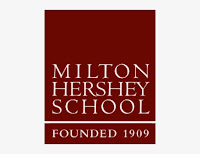 |
| Photo: Public Domain |
During the Progressive Era, the plight of needy and orphaned children was at the forefront of people’s minds. Hundreds of public and private orphanages and other institutions were founded between 1880 and 1910 to serve children as well as protect communities from those considered dangerous. Orphan trains took thousands of youngsters to the West, and in 1909, President Roosevelt hosted a conference on “The Care of Dependent Children.” Experts at the meeting indicated that rather than large buildings children developed better if raised in cottages that emulated family life.
Milton and Catherine Sweeney had no children of their own and decided to use their wealth to open an orphanage. Based on the cottage model that would later be used by Boys Town in Nebraska, the orphanage initially housed twelve boys in homes headed by couples. Interestingly, the deed of trust written to create the facility was based on one written by Stephen Girard in 1831 when he endowed a school for orphans in Philadelphia. (Girard was so wealthy that he financed America through the War of 1812). In a rare gesture for the times, both Milton and Catherine signed the deed.
Within a short time, the orphanage had grown to include classrooms. Older boys received standard
academic courses but were also trained for farming as a trade. The younger children’s program was based upon the teachings of Friedrich Froebel, inventor of the kindergarten who emphasized play and physical activity. According to the Milton Hershey School website, Milton always insisted starting the school “was Kitty’s idea.”
 |
| Photo: courtesy mhskids.org |
The deed established funding as well as the rules under which the facility would operate. Preference would be given to boys from the three counties nearest the town of Hershey, then admit orphans from Pennsylvania and the rest of the United States. Instruction would focus on preparing the children for jobs in industry or agriculture rather than college. The boys had standards for behavior, academic performance, and character.
 |
| Photo: courtesy mhskids.org |
Did you know about the Hershey's orphanage?
_______________________
Linda Shenton Matchett writes about ordinary people who did extraordinary things in days gone by. A volunteer docent and archivist for the Wright Museum of WWII, Linda is a former trustee for her local public library. She is a native of Baltimore, Maryland, and was born a stone’s throw from Fort McHenry. Linda has lived in historic places all her life and is now located in central New Hampshire where her favorite activities include exploring historic sites and immersing herself in the imaginary worlds created by other authors. Learn more about Linda and her books at http://www.LindaShentonMatchett.com.
Gold Rush Bride Tegan:
Elijah Hunter has prospected for gold all over the US and Canada and likes being on the move. The last thing he expects to find on his latest search is a lady miner who proves to be nothing but trouble. Can he convince her that leaving is for her own good before it’s too late...for both of them?
Purchase Link: https://amzn.to/3KVEHev



Yes, my late husband and I toured the grounds/buildings of the Milton Hershey School. I was definitely impressed!
ReplyDeleteWhat a wonderful opportunity. Thanks for sharing.
ReplyDeleteThanks for posting! What a wonderful thing for Mr. Hershey to do. It sounds like a great place and I truly pray that it has changed the lives of many generations of children.
ReplyDeleteThanks for stopping by Connie. You are such a faithful reader and encourager!
ReplyDeleteI just love reading about all of the diverse subjects you can find here, and I usually always learn something new.
DeleteI did not know about them. This is very interesting. Thanks for sharing.
ReplyDeleteI'm glad you enjoyed the post. Thanks for stopping by.
Delete